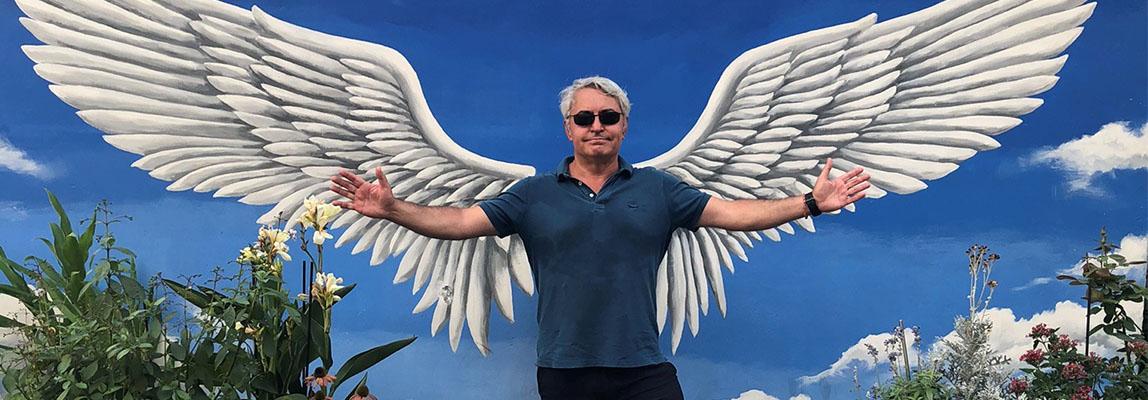
‘One must not think ill of the paradox’
06/24/2024 - 14:24
- Expertise
- Research
Erdinç Çakmak, lecturer and researcher in the Tourism domain, takes us through the background of his research activities within the framework of our Centre for Sustainability, Tourism and Transport.
What is it all about?
‘The common thread in my research activities are paradoxes in our social lives. It is often about the contradictory nature of human behaviour and tourism ecosystems.’
Why is it so important to explore this?
‘Research on paradoxes is crucial because it pushes the boundaries of our understanding and forces us to refine our models across several issues in tourism. In a social discussion, choosing a side is often the easiest way. Yet, by embracing paradoxes and fostering an open mindset, we nurture greater hope for making progress in our communities. Social paradoxes often highlight conflicts and contradictions in human interactions and societal structures. For instance, there is the paradox of protecting individual rights versus protecting the collective good.’
Quite essential in the tourism context, isn’t it?
‘Definitely! In the context of tourism, there are many apparent contradictions and inconsistencies. At the same time, tourism can bring significant economic benefits to a destination, such as increased revenue, job creation, and cultural exchange, but excessive tourism practices can also lead to negative consequences, including environmental degradation, loss of local culture, and reduced quality of life for residents.’
What is the main focus in your research?
‘My research focuses on sustainability practices for destinations. It highlights strategies for destinations to implement sustainable tourism practices, which should balance economic benefits with environmental protection and social well-being.’
Can you say anything about the outcomes yet?
‘It’s an ongoing process, let me put that first, and I’m doing this research not just on my own but with my colleagues from the Centre for Sustainability, Tourism and Transport.’
But can you give an example in which that ‘balancing’ comes into play?
‘For instance, there is a strong assumption that formal and informal economies relate negatively to each other. If the formal economy grows, its counterpart, the informal economy contracts, and the reverse is also true. However, we have found this is not true for all sectors, at least not for the tourism sector. After analysing over four decades of tourism data in Thailand, we discovered that formal and informal tourism economies are significantly and positively interconnected. Both show similar reactions to recessions and political instability, and they grow in parallel. This means that professionals and policy-makers ought to be careful in developing strategies aimed at reducing informal tourism activities, because these may also reduce formal tourism output in a country.’
Something you take back into the Tourism Destination Management master's programme, of which you are the coordinator today?
‘Absolutely true! In the context of this master’s programme, I discuss paradoxes with my students to inspire them towards creative thinking and innovation, challenging them with problems that require novel solutions. They do research at destinations, leading them to new approaches in areas such as community development, organisational behaviour, and social entrepreneurship. They also need to consider paradoxes for policy-makers. Understanding these paradoxes can lead to suggested interventions for better governance and policy-making that navigate these complexities effectively.’
Navigating these complexities doesn't sound easy, does it?
‘By discussing paradoxes, you don’t make friends easily. I once heard someone say a colleague was a bit reluctant to argue with me because I always ask such critical questions. Of course it is not my intention to scare people off. I simply need to ask critical questions and highlight the counterintuitive nature of reality. Embracing complexities in decision-making helps us develop strategies for resolving disputes, mediating conflicts, and finding balanced solutions, considering multiple perspectives and interests.’
Where do you think it comes from, this need to ask critical questions?
‘Since my secondary school days in Ankara, I’ve found it fascinating to encounter and reflect on paradoxes. They encouraged me to think critically, embrace ambiguity, and develop a more nuanced understanding of the world. All in all, paradoxes fostered my personal growth and social development. It helped me a lot. So, a paradox is not that bad. Reminds me of a quote by Søren Kierkegaard – let me think – but one must not think ill of the paradox, for the paradox is the passion of thought, and the thinker without paradox is like the lover without passion: a mediocre fellow.’
Erdinç Çakmak co-authored articles and books about social issues at conflict-ridden destinations, practices of informal entrepreneurs at tourism destinations, and many other issues related to tourism paradoxes. Together with Paul Peeters and J. Guiver, he wrote a paper which adopts a problematising review approach to examine the extent of mitigating climate change in sustainable tourism research. Furthermore, he is on the BUas research team of CrossReTour. This project aims to support SMEs in the tourism industry to become more green, digital and circular. Our colleague Elisa van den Heuvel will tell more about this project on the portal soon!